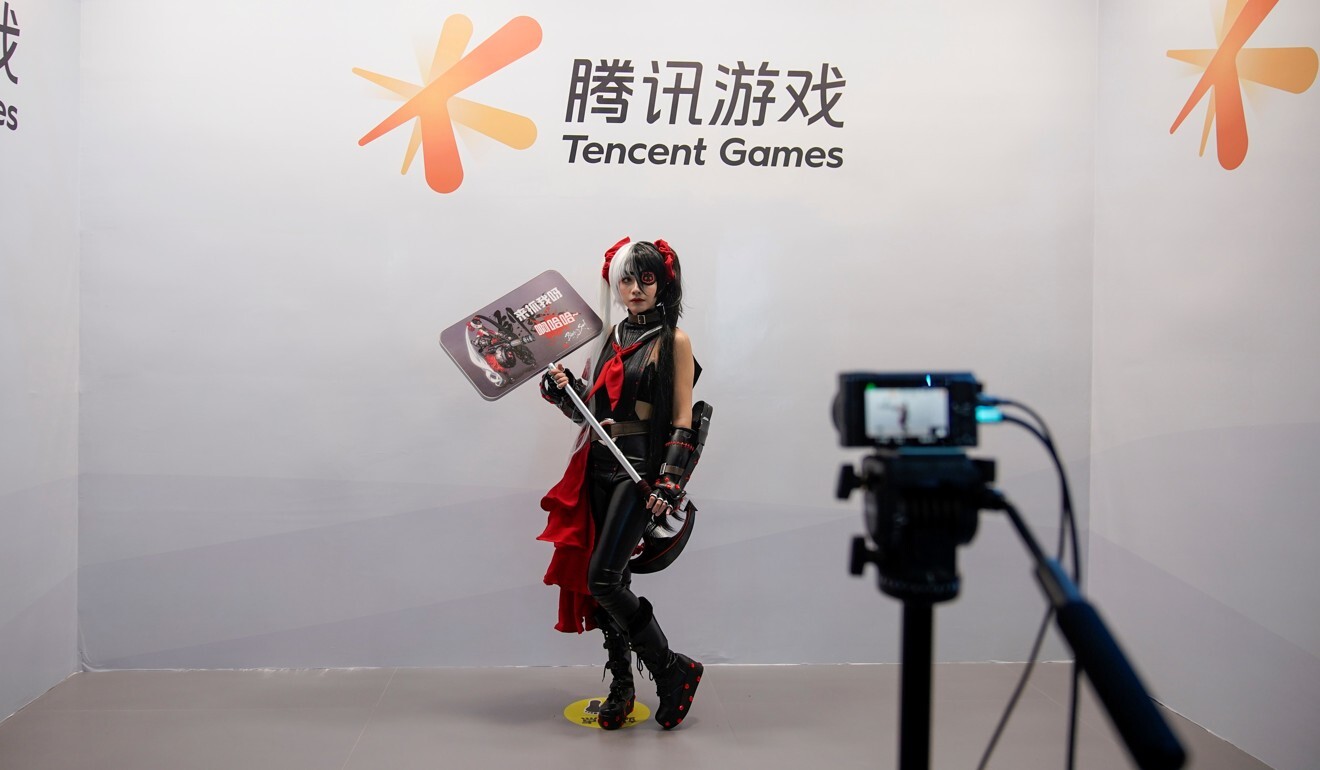
Tencent says it has the technology to build the metaverse and Beijing does not oppose the concept
- The company can approach the metaverse through its video game and social networking businesses, according to Tencent president Martin Lau
- The last time a Tencent executive publicly spoke about the metaverse was at the company’s annual video gaming conference in May

Tencent Holdings, the world’s biggest gaming company and operator of Chinese super app WeChat, officially broke its silence on the red-hot concept of the metaverse, saying it has an abundance of technologies to develop what has been called the next iteration of the internet.
Martin Lau, president of the Shenzhen-based company, said on an earnings call on Wednesday that it can potentially approach the metaverse through a range of businesses, citing video game development and social networking as major strengths. The 48-year-old executive also said Beijing does not appear to be “fundamentally averse” to the metaverse, although it would come up with a set of regulations different from the rest of the world.
“We have a lot of tech and capability building blocks that will allow us to approach the metaverse opportunity through [multiple pathways],” Lau said.
Until now, Tencent executives have not publicly discussed the metaverse in any detail. Instead, they have opted to promote the company’s own concepts of “all-real internet” and “hyper digital reality”.
Chinese market regulators have been wary of the concept of metaverse. The bull run of some so-called metaverse concept stocks listed in Shenzhen and Shanghai recently prompted queries from authorities.
The interest around the concept surged to a new height after Facebook renamed itself Meta last month. Western tech giants including Microsoft, Nvidia, Roblox and Epic Games all have now made the metaverse a core part of their business strategy, in contrast to the relative silence from Chinese Big Tech on the matter.
On Wednesday, Lau acknowledged that the metaverse was “very exciting, but a little bit vague”.
“We felt anything that really makes the virtual world more real and making the real world richer with virtual experiences [is something] that can actually become part of the metaverse,” he said.
Lau said there were multiple pathways for Tencent to reach the metaverse, citing the company’s leadership in gaming and social networking as two examples, which draw on Tencent’s capabilities in game engines and artificial intelligence, while its large server architecture can accommodate a huge number of concurrent users.
Tencent was experienced in “managing digital content economies as well as real life digital assets”, which will help its move towards the metaverse, Lau added.
Last month, the South China Morning Post reported exclusively that Tencent plans to sharpen its focus on metaverse-like developments by assembling an international team for a new studio under its flagship game development company TiMi Studio Group.
China’s crackdown on tech and market speculation has seen companies shy away from the limelight. However, facing an avalanche of questions from analysts regarding the metaverse during the call on Wednesday, Tencent was forced to respond.

“For the China market there’ll be another set of regulations. But we felt it’s not fundamentally averse to the development of the metaverse. Metaverse in itself will be tech-driven,” Lau said.
“There are a lot of technologies related to the development of games as well as for the metaverse … the Chinese government will be in support of the development of such technologies, as long as the user experience is actually provided under the regulatory framework.”
Lau believes the metaverse will take longer than people expect to come to fruition, and it would undergo a “number of iterations” along the way. “There will be a lot of challenges. There’s a lot of uncertainty,” he added.
During the earnings call, Lau responded to a question about the all-real internet, or “quanzhen internet”, a concept that company co-founder and chief executive Pony Ma first proposed in the company’s annual brochure in 2019.
“I think it’s partly using our technology to actually make the real world experience enriched with virtual experience and also leveraging virtual technology to actually help real life simulations. So a lot of the core logic is actually similar to what we answered on metaverse,” he said.
The last time a Tencent executive publicly spoke about the metaverse was at the company’s annual video gaming conference in May, when its gaming chief Steven Ma acknowledged the popularity of the concept at the start of his speech, but proceeded to introduce Tencent’s own idea of “Hyper Digital Reality”.

01:14
Zuckerberg announces Facebook changing name to Meta to stress ‘metaverse’ plan
However, in September, Tencent filed to register nearly 100 metaverse-related trademarks, including “QQ Metaverse”, “QQ Music Metaverse” and “Kings Metaverse” – corresponding to the names of the company’s messaging app, music-streaming platform and marquee mobile game Honour of Kings.
Matthew Kanterman, senior analyst at Bloomberg Intelligence, said Tencent clearly has had a strategy for the metaverse for a long time, but now that it is becoming a mainstream term, the company is learning to embrace it.
“Their investee Roblox has been building towards a vision for the metaverse for 16 years and Epic Games has had a similarly ambitious growth plan for quite some time, so this isn’t new for Tencent,” said Kanterman, who has predicted that the metaverse industry will be worth US$800 billion by 2024.
However, he warned that regulatory risks remain for firms looking to expand into the metaverse. “Most of the concern so far has been around not letting companies overhype their strategies that lack substance,” he said. “In the case of Tencent, they tend to be quite reserved and let the quality of their products speak for themselves, and so I’m not too worried.”